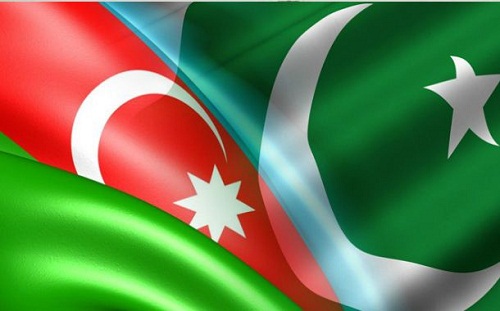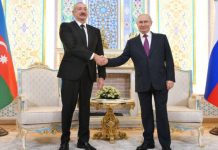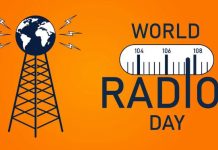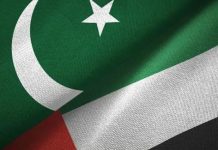Since Azerbaijan became an independent state in 1991, it has had close relations with Pakistan. The latter was among the first three countries that immediately recognized Azerbaijan’s independence from the former Soviet Union. Both Azerbaijan and Pakistan are Muslim-majority countries that have supported each other throughout the last three decades on important political issues such as Kashmir and Karabakh. For instance, in April 1993, when the Armenian forces illegally occupied Azerbaijani province of Kalbajar, Pakistan co-sponsored the United Nations Security Council (UNSC) Resolution 822, which demanded the immediate cessation of the hostilities in Karabakh and the withdrawal of Armenian occupying forces from the afore-mentioned province.
Furthermore, Pakistan remains the only country that avoids recognition of Armenia due to the latter`s aggressive policy against Azerbaijan, and one of few countries to have officially recognized the scale of the horrendous Khojaly massacre carried out by Armenian gangs against Azerbaijani civilians in February 1992.
Such a fraternal and warm attitude by Pakistan has always sparked reciprocal rhetoric and action by Azerbaijan, which in turn has always supported Pakistan’s stance on the Jammu and Kashmir issue. Azerbaijan is also a member of the Jammu and Kashmir Contact Group and backs Pakistan in resolving its border disputes with India.
Azerbaijan`s capital in green
During the Second Karabakh war last autumn, Pakistan extended full and unconditional support, again, to Azerbaijan and welcomed the liberation of the territories formerly occupied by Armenia.
This attitude triggered an unprecedented Pakistanomania across Azerbaijan: throughout the 44-day war (27 September – 10 November), as well as in the immediate aftermath, Pakistani flags (along with Azerbaijani and Turkish flags) became something routine and usual for Azerbaijani towns, especially the capital city, Baku, where Parcham-e Sitarah o-Hilal was hung from balconies, and on façade of the buildings, painted on walls, and placed inside houses and offices. Numerous private vehicles were decorated with Pakistani national colors. One of the most creative displays of this obsession took place inside a supermarket, which hosted the Pakistani flag (again together with Azerbaijani and Turkish) made with fruits and vegetables. Both the Victory Day (10 November) and subsequent Victory Parade (10 December) had Pakistani flags as an integral element of celebrations.
Post-war relations
The post-war period did not shrink the political and military alliance; on the contrary, the sides are resolute to strengthen these relations. Several Pakistani officials visited Karabakh, where they would witness the scale of the Armenian-made destruction and call on the international community to help Azerbaijan rehabilitate the liberated areas.
Very recently, in early March 2021, Azerbaijan was attended by a high-level Pakistani delegation led by General Nadeem Raza, the Chairman Joint Chiefs of Staff Committee. In his meeting with Azerbaijani military officials, General Raza discussed the prospects for the development of cooperation between the two countries in the military, military-technical, military-educational, and other spheres, as well as joint military exercises.
In late March 2021, Azerbaijani Foreign Minister CeyhunBayramov met with his Pakistani counterpart Shah Mahmood Qureshi to discuss various opportunities for cooperation.
The Azerbaijan-Pakistan relations is also transforming into a more effective triangle with the involvement of Turkey: according to a tripartite declaration signed in January 2021, the three nations are to support each other in challenging issues, further develop the trilateral relations between these countries, since regional transportation and communication channels that provide more opportunities for cooperation have opened as a result of the liberation of Azerbaijani territories. Some experts even suggest this trio can partner in space-related activities.
Current economic relations
While Azerbaijan and Pakistan enjoy the highest level of political ties, the economic and trade relations leave much to be desired: in 2019, Pakistan’s exports to Azerbaijan amounted to some $25 million, while goods in the reverse direction slightly exceeded $1 million. The trade turnover was even lowered to $10 million in 2020, due to the pandemic.
Noticing the economic relations trail behind the political ties, the officials in both countries have been keen to improve this trend in the recent years. The 2015 business forum hosted in Baku was attended by presidents of both Azerbaijan and Pakistan, Ilham Aliyev and Mamnoon Hussain. Organized in 2019 by Azerbaijan`s Export and Investment Promotion Foundation (AZPROMO) and Pakistan`s Border Trade and Industry Chamber, a similar business forum attracted over 150 entrepreneurs operating in various sectors.
In 2017, Azerbaijan and Pakistan signed an agreement on cooperation in the energy sector, with two countries having set goals to buildlong-term energy ties. Azerbaijan`s oil giant SOCAR has been offering the supply of gasoline and LNG cargo to Pakistan LNG Ltd as well as Pakistan State Oil.[1]At the end of 2020, Socar announced that it would help Pakistan to overcome natural gas crisis that could have happened in January 2021. Consequently, it offered bids at the level of 20.4832% of Brent for the time interval from January 29 to February 1, 2021.[2] According to information, SOCAR is soon going to operate fuel stations in Pakistan.
What can further be done?
The liberation of the occupied territories in Karabakh has not only changed the geopolitical picture in the Caucasus, but also is offering new economic opportunities and prospects. As the entire infrastructure of once prosperous cities and villages in Karabakh had been razed to the ground by the Armenian occupants in the past 25 years, the region`s revival will require a lot of resources and synergy in the forms multi-billion-dollar infrastructure projects. Since it would be too difficult for Azerbaijan to solely rebuild new settlements, Baku is considering proposals for outside investors as well. It should also be noted that the Azerbaijani side will offer preferential policies and concessions to those countries who had been supportive of Azerbaijan`s military efforts of liberating the formerly occupied lands. Pakistan is among these few nations, whose companies can and must partake in the Karabakh infrastructure projects, by enjoying the said preferential attitude. This invite was voiced at the highest level: in the 14th Summit of Economic Cooperation Organization (ECO), the President of Azerbaijan Ilham Aliyev once again thanked Pakistan for its active support throughout the conflict and invited the government of Pakistan, as well as private companies, businesses, investors to invest in the liberated territories of Azerbaijan.
According to the Azerbaijani government`s plan, smart towns and smart villages will be built in the newly liberated areas. This is one of the sectors in which Pakistan can be involved and be effective: Pakistan`s growing IT sector, which generates an annual revenue of between $3 and $4 billion, can put forth viable solutions to Azerbaijan`s smart settlement concepts.
Pakistani agricultural and pharmaceutical firms can not only discover a new market in Azerbaijan, but also use Azerbaijan as a springboard (through joint ventures or re-export) to access to a huge post-Soviet market.
In the post-pandemic period, when traveling mode will return to normalcy, mutual tourism should be encouraged. According to reports, the sides plan to launch Baku-Islamabad direct flight, which can boost not only people-to-people contacts and tourism, but also economic relations.
While Pakistan enjoys a highly positive image in Azerbaijan, this soft power should not be based solely on political and military relations. Pakistani industrial and agricultural companies, as well as cultural organizations should also assume more role within this framework. Why not introduce Lollywood products in Azerbaijan or organize fairs of Pakistan-made exotic fruits in Baku, for instance?
In other words, both societies have an ocean of opportunities to boost economic and cultural ties, which await to be properly exploited.
About the authors:
Rusif Huseynov is the Co-founder and Director of Topchubashov Center, a Baku-based think tank.
Dunya Suleymanova is a research intern at Topchubashov Center.

















